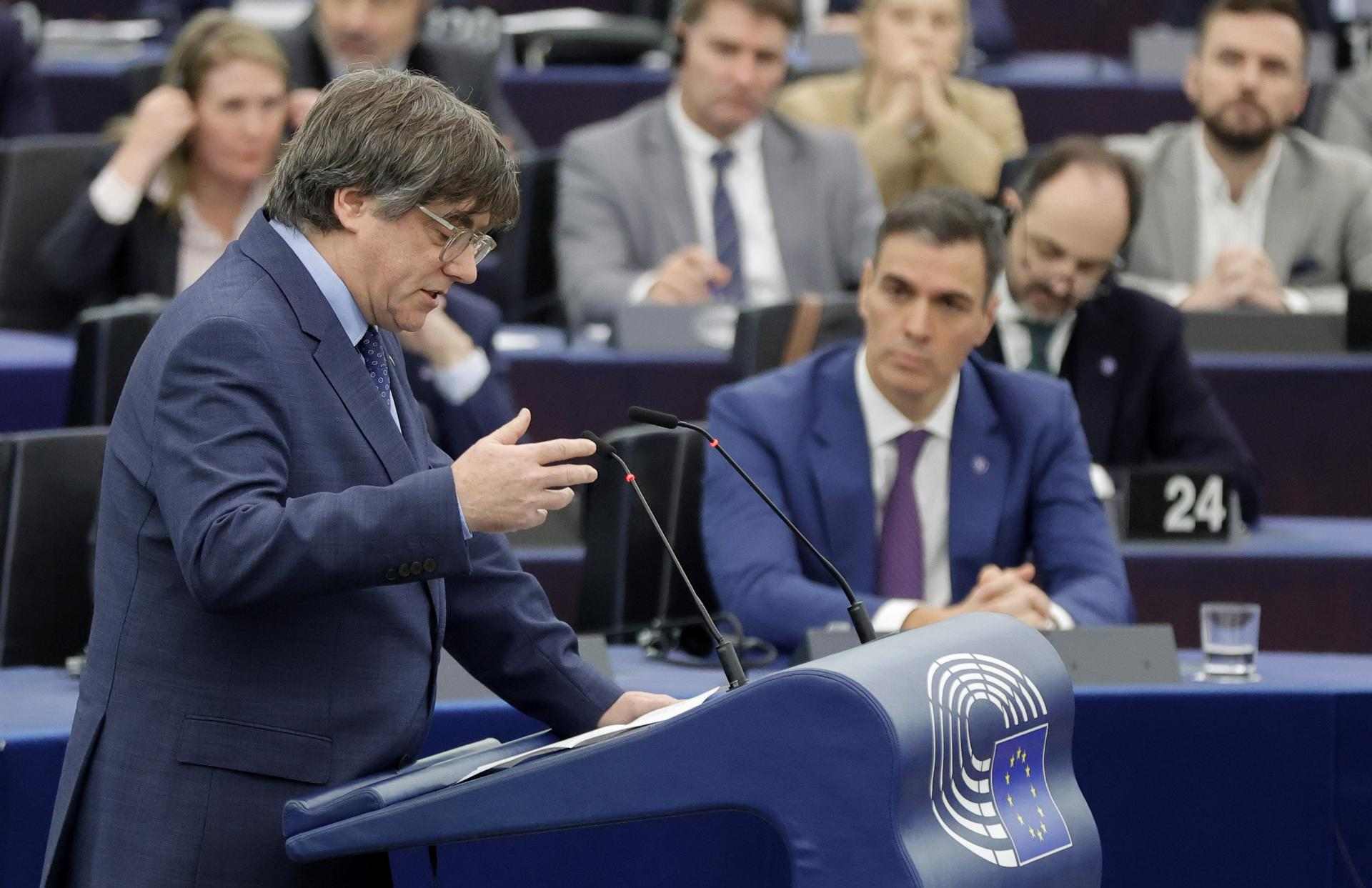This Tuesday, Spain's Congress of Deputies voted against the passing of the amnesty law for the Catalan independence process, with Together for Catalonia (Junts), crucial in bringing about the legislative proposal, casting their votes against the text. The party opposed validating the text as it stands now because it considers that "it has loopholes which the abusive Spanish justice system can use to make the amnesty useless" and its refusal to back the bill takes the proposal back a phase in the parliamentary process. After the vote, the Catalan president-in-exile, Carles Puigdemont, wanted to explain the reasons for his party's decision to vote against the landmark legislation. "We could not give our support to a bill that has important failings that have not been corrected," he states in a post on social media X, affirming that the Junts spokesperson in Congress, Míriam Nogueras, "explained these reasons very well in her speech".
Les raons per les quals @JuntsXCat ha votat en contra de la llei d’amnistia que avui s’ha vist al Congrés dels Diputats han estat molt ben exposades per la nostra portaveu, @miriamnoguerasM.
— krls.eth / Carles Puigdemont (@KRLS) January 30, 2024
No podíem donar el nostre suport a un projecte de llei que té mancances importants que…
Puigdemont, founder of Junts, points out that, this very afternoon, the Socialists (PSOE) rejected the amendments proposed by Puigdemont's party, which is why they voted against the law. "The text that was voted on today after the rejection of our amendments was not the amnesty law that led us to vote in favour of the investiture of Pedro Sánchez as Spanish PM. This was not the amnesty that had to put an end to the repression factor that rarefies the political conversation between Spain and Catalonia. That was an indispensable condition for being able to work", remarks Puigdemont.
Thus, the Junts MEP emphasizes that the basis of his party's 'no' to the current amnesty bill is based on the fact that they consider that there are "loopholes" in the law that would prevent it from being a "comprehensive" amnesty and that, in the subsequent application of the rule by the Spanish judges, of whom Puigdemont expresses a clear mistrust, it would have had weak points. From Junts, as spokesperson Míriam Nogueras already explained to Congress, they wanted to formulate changes to make the amnesty more "solid", changes that the PSOE has not accepted. "Do they want us to trust that these conspiring judges and prosecutors will give us justice? Do they think that we don't know them? There is only one way to curb their patriotic drive: to make a stronger law, without so many loopholes. That is what we have tried to do all these weeks, until the end; no one will be able to say that we did not want to reach an agreement. But we have not reached it," argues Puigdemont.
"Certainly, in Spain's picaresque culture, every law has its loophole. This one would not have been the exception, even if it had been passed with our amendments. But if we are in agreement that we have identified some of the loopholes that are blocking us - and indeed we are - I don't know why they refuse to deactiviate them and make more difficult the mission of the coup-leaders in judges' robes. A mission which is none other than subtly subverting constitutional legality to replace it with their robe-clad legality", explained the president-in-exile, claiming that the proposed amendments sought to make the law "more solid", something that was in the end not passed.
Despite the obvious differences that Puigdemont expresses in his argument, he also wanted to make clear his support for the "efforts" made by the PSOE and Sumar to reach an agreement. "At the outset I want it to be clear that we value the efforts made by the PSOE and Sumar in defending an amnesty law in a hostile context, of verbal and sometimes physical violence; in a climate rarefied and put on edge by the losers of the quest to form a government, with ways of behaving which, if they had been adopted by Catalan (or Basque) citizens, would have been brought before justice with delusional accusations," he wrote.
And the Catalan president concludes by making clear his commitment to reach the desired text: "We have a few days to redo the initial consensus, about which I have no doubts, that the amnesty must include everyone persecuted by this machinery of severing fundamental rights which - for pro-independence Catalans - the Spanish judiciary has become. We'll see if we can do it." And he adds as a final warning: "But we will not budge from the commitment to include everyone."

